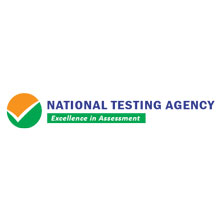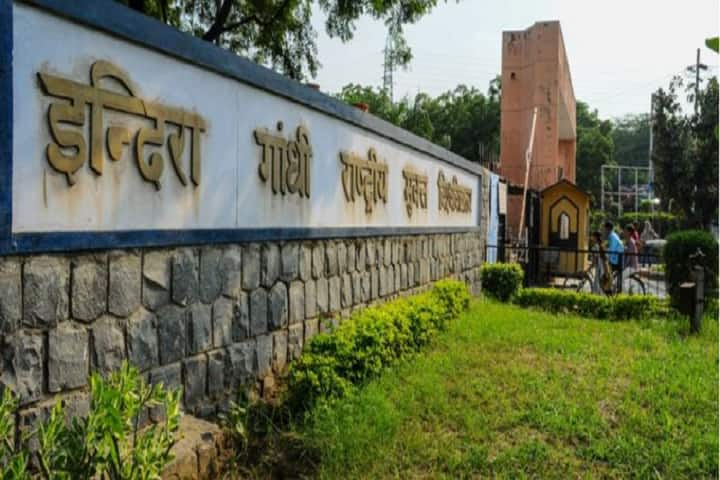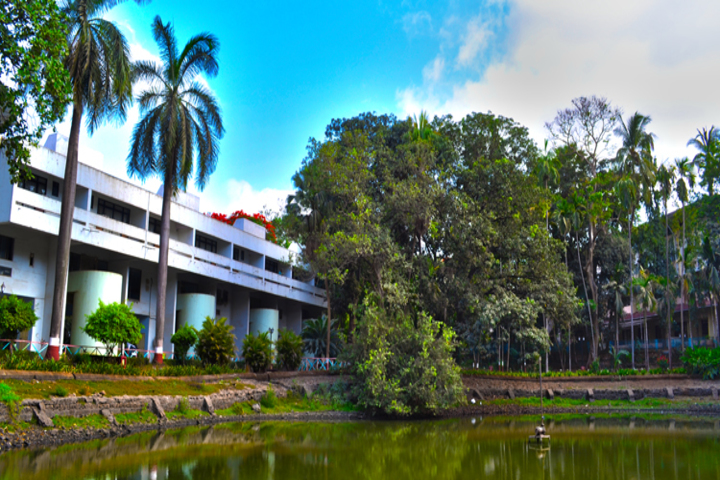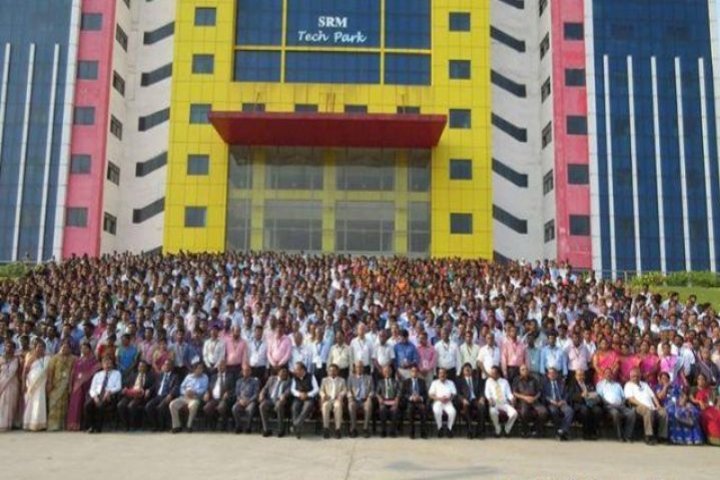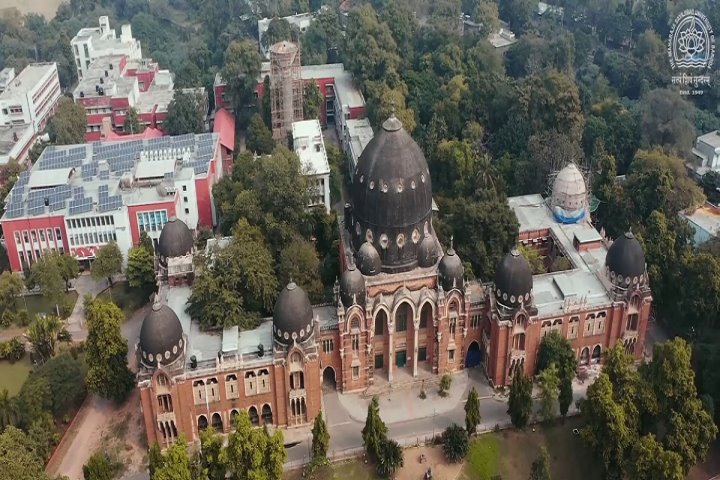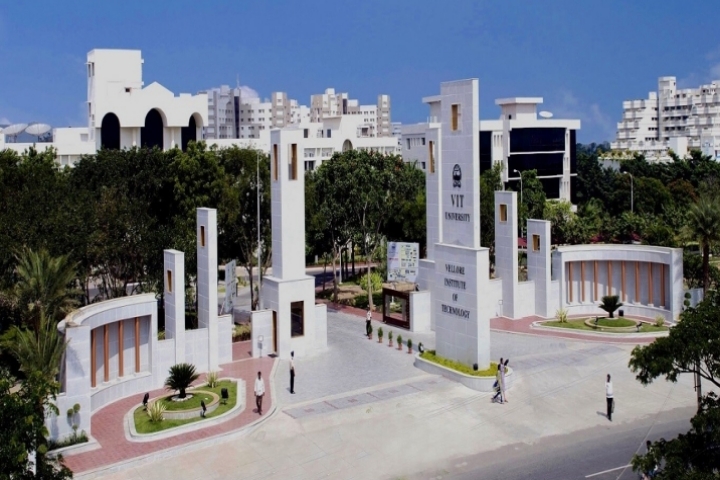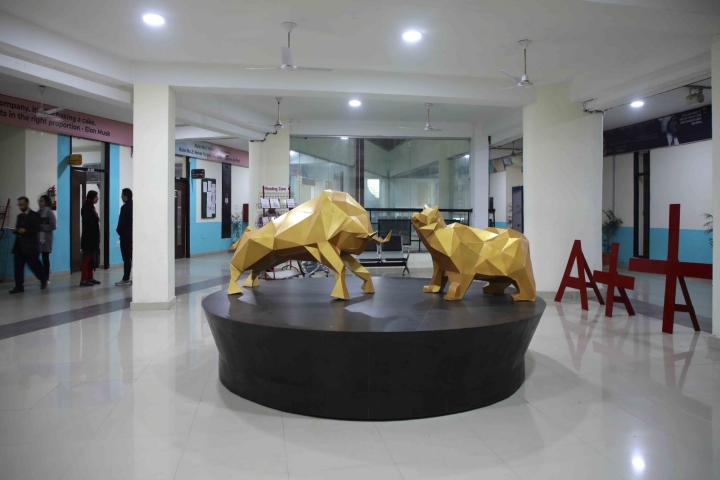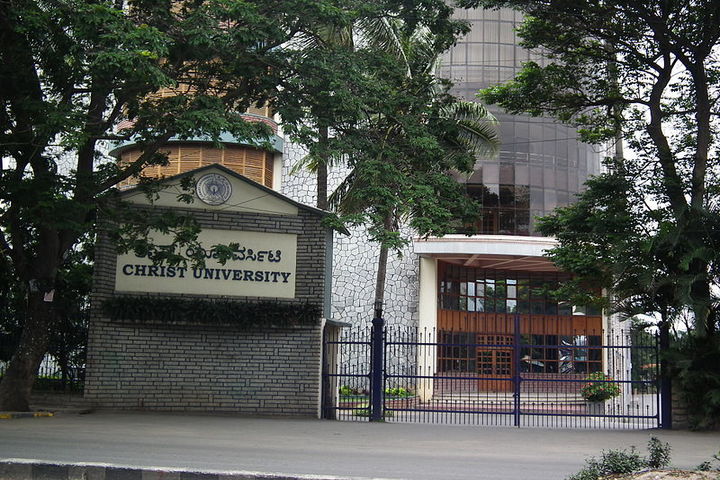
Alternative Medicine Course Details - Fees, Subjects, Syllabus, Duration, Eligibility, Career Scope
Degrees offered: B.A., B.Sc M.Sc, Diploma, Dual Degree
What is Alternative Medicine
The study of natural medical procedures that use old age or ancient methods to cure the body is known as alternative medicine. It focuses on medical tools and procedures that fall outside the domain of standard clinical treatment. Dietary supplements, vitamins, organic foods, herbal remedies, massage therapy, magnet therapy, and spiritual healing are all examples of alternative medicine. These medical systems are popular among young aspirants in India due to their effectiveness and scientific applicability. Homoeopathy, Unani, Ayurveda, and Naturopathy are some of the well-known alternative medical systems.
Numerous colleges in India that offer specialisation in alternative medicine provide education at the diploma, undergraduate, and postgraduate levels. The courses in diploma and pg involve ayurveda, Homeopathy Pharmacy, and Yoga Therapy.
Alternative medicine course Highlights
Particulars | Values |
Branch Name | Alternative Medicine |
Degree | UG courses: BAMS, BHMS, BUMS, BNYS, Diet Therapy |
PG courses: Master of Naturopathy and Yoga Science, Master of Yoga Therapy. | |
Diploma & PG Diploma: Ayurveda, Pharmacy, Homeopathy Pharmacy, Yoga therapy. | |
Doctorate: Naturopathy, Holistic medicine, Philosophy in Naturopathy Alternative Medicine. | |
MD: Homoeopathy, Ayurveda, MD Alternative Medicine. | |
Duration | UG (3-5 years) |
PG(2 years) | |
Diploma and PG diploma (2 years) | |
Doctorate(2-3 years) | |
MD(1-2 years) | |
Eligibility | UG: 12th class with Physics, Chemistry, Biology for BAMS, BNYS, BUMS, BHMS) from a recognised board |
PG: UG from a recognised university with a Bachelor’s degree in Alternative Medicine | |
Diploma: Pass in Class 10th and 12th from a recognised board or university | |
Doctorate: PG program with the specified field as the main subject. | |
MD: UG from a recognised University with a Bachelor’s degree in Alternative Medicine | |
Admission Process | Admission is based on the merit score in entrance exams |
Top Entrance Exams | NEET, AIIMS, JIPMER, AP EAMCET, and NEET SS |
Course Fees | Rs 25,000- Rs 75,000 |
Semesters | UG(6-10 semesters) PG( 4 semesters) Diploma and PG diploma (4 semesters) Doctorate( 4- 6 semesters) MD( 4 semesters) |
Top Colleges | BHU( Banaras Hindu University), AIIMS, Parul University, and LPU( Lovely Professional University) |
Career options | Therapists, Physicians, Nutritionists, Pharmacists, and Health Administrators. |
Average Salary | Rs 4,00,000- Rs 9,00,000 |
Recruiting Companies | Apollo Hospital Enterprises Ltd, piramal Enterprises, Rehabilitation centres, Government and private clinics, Healthcare Global Enterprises, and Fortis Healthcare Ltd. |
Specialisations or similar one
Furthermore, various segments of one field may overlap with elements of another. Let us take a look at some of the notable specialisations available to aspirants through Alternative Medicine courses.
| Acupuncture | Oriental Medicine |
Massage therapy | Homoeopathy |
Herbal medicine | Yoga |
Ayurveda | Naturopathy |
In recent years alternative medicine has grown tremendously in India. The changes in this field occur only because they conducted much research and experiments in various fields like Homeopathy, and Allopathy. As a result, it is critical to consider all of these factors in order to achieve optimal integration and increase academic freedom for researchers to investigate a wide range of traditional medical systems, even if the principles they study appear to be difficult to reconcile with conventional biomedicine at the moment.
Professionals in alternative medicine can pursue their careers in two ways. They can establish their own private practice clinic and grow it into a profitable healthcare enterprise. This option is becoming more popular around the world, and the majority of alternative medicine professionals end up opening their own clinic.
Eligibility Criteria (UG & PG) of Alternative Medicine
The essential requirements for students who want to enrol in alternative medical programmes at famous medical colleges. There are UG, PG, Diploma, and Doctorate level courses available. Numerous courses are provided across the country in both online and offline formats. Numerous colleges offer courses in alternative medicine in a variety of fields at the diploma, graduate, and postgraduate levels. These programmes offer a variety of opportunities and are often not too difficult to locate around the country.
Eligibility Criteria for Alternative medicine courses
UG Level: Candidates should pass the 12th class from the recognised university with at least aggregate 50 per cent to 55 per cent, and they should have studied the main subjects as science, maths, physics, biology and chemistry. Candidates need to appear for the entrance exam and should score cut off marks decided by the various colleges and universities.
PG Level: Candidates should clear the UG from the recognised university with the more than 50 per cent to 60 per cent as the minimum marks and they should also clear the entrance exams to pursue the course.
Diploma: Candidates should pass the 12th class from the recognised board or university and must have studied primary subjects as maths, science, physics, chemistry and biology.
Doctorate: Candidates must have earned their master's degree from an institution or board that is recognised. Candidates must have a graduate degree in the relevant discipline or specialisation. He or she needs to appear for the entrance examination to pursue the course related to doctorate in alternative medicine.
Top Entrance Examination for Alternative Medicine
There are few entrance examinations required to pursue the course. These examination scores help the candidate to get the admission in the top most colleges in India. There are many universities as well which conducts the entrance examination for the students to get the seat in the respective universities or colleges.
NEET: NEET stands for National Eligibility cum Entrance Test (Undergraduate). Students who want to pursue undergraduate degrees in medicine, dentistry, and AYUSH must take the National Eligibility cum Entrance Test (Undergraduate), often known as NEET UG or AIPMT All India Pre-Medical Test (BAMS, BUMS, and BHMS)
AP EAMCET: The Andhra Pradesh Engineering Agriculture and Medical Common Entrance Test (AP EAMCET) is a yearly state level entrance exam. The AP EAMCET exam is administered by Jawaharlal Nehru Technological University for admission to various engineering, medical, and agricultural undergraduate courses offered by over 400 institutes in the state.
Top Entrance Exams for PG Courses
The exams listed below are held by reputable universities and top colleges for students that want to pursue a master's degree in alternative medicine. Candidates must appear in the entrance examinations listed below. Based on the scores in the entrance exam students are going to get admission into the colleges.
PGIMER: PGIMER entrance exam is a university-level examination held twice a year in January and July by Postgraduate Institute of Medical Education & Research (PGIMER) for admitting candidates to postgraduate medical science courses such as Medical diploma, pharmacy, and therapists.
NEET PG: The National Eligibility cum Entrance Test (NEET-PG) is an all-India level entrance exam for graduate students interested in studying postgraduate medical courses (MD/ MS) in India's government or private medical colleges. The National Board of Examinations(NBE) is in charge of it. Without the NEET PG, one can pursue a variety of other fellowships or PG medical programs.
College Predictors VIEW ALL
Course Fees Alternative Medicine
| Minimum Fees | Maximum Fees | |||
|---|---|---|---|---|
| Private | Government | Private | Government | |
| UG | ||||
| PG | ||||
| DIPLOMA | ||||
Course Subjects
The syllabus or course curriculum for alternative medicine courses varies depending on the level of study the candidate chooses such as diploma, undergraduate, postgraduate, doctorate. The subjects in the curriculum involve all the specialisations that are required by the candidate for growing in their career. These subjects help the candidate to understand the stream they selected and also to understand the concepts clearly. Here are the subjects covered in all the degrees.
Physiology Including Biochemistry | Padartha Vigyana |
Anatomy, Histology, and Embryology | Biochemistry |
Homoeopathic pharmacy | Nutrition & Herbology |
Community Medicine | Clinical Naturopathy |
Obstetrics and Gynaecology | Manipulative Therapies |
History of Unani System | Fasting & Diet therapy |
Pharmacology of Ayurveda | Physical Medicine and Rehabilitation |
Homeo Therapeutics | Philosophy of Nature Cure |
Careers in Alternative Medicine
Therapists | Therapists build a relationship of trust with patients. Therapists diagnose and cure conditions affecting the mind. Customised treatment programs are developed based on the requirements and conditions of the patient. The therapist routinely meets with patients to offer counselling, and treatment. |
A physician should make every effort to add to the comfort of the sick by making his visits at the time specified by the patients. A physician advising a patient to seek the services of another physician is acceptable. However, in the event of an emergency, the patient must be treated by a physician. | |
Nutritionists | A nutritionist is in charge of assessing people's nutritional needs using scientific methods and recommending the best nutrition plans. He or she must be qualified and well-versed in relevant matters, as well as capable of suggesting tailored solutions. |
Pharmacists are trained healthcare professionals who store, handle, prepare, and dispense various medications. They play an important role in educating patients about how to use or administer their medications. Similarly, they act as a "last check" to ensure that doses are correct and that a patient does not experience negative or harmful drug interactions. | |
Healthcare administrators manage the administrative operations of hospitals and other healthcare facilities on a daily basis. Their duties include planning and supervising all medical services, as well as budgeting and updating health records. |
Upcoming trends
Alternative medicine treatment is defined as therapy that is not provided by allopathic medications and includes one or more of the following treatments: folk and traditional medicine using medicinal herbs, Chinese medicine, and homoeopathy (including acupuncture) Nutritional therapy and homoeopathy (nutritional supplement and diets specifically designed for cancer treatment) Mind-body practices (meditation, guided imagery and relaxation). Movement and manipulation therapies (chiropractic, yoga, and anthroposophical medicines) and therapeutic touch (massage, shiatsu, and reflexology).
Allopathic medications have made remarkable advances in the last few decades. Nobody can deny the benefits that immunisation, antibiotics, hip replacements, and organ transplantation have provided to millions of people around the world. However, the advances also highlight those conditions where progress has been slower, with patients increasingly seeking assistance from complementary and alternative therapies.
Job Profiles and Top Recruiters
Cipla
Fortis healthcare institute
Private Clinics
Government Clinics
Rehabilitation Centers
Apollo Hospitals
AYUSH Health centres
Average Salary
A general practitioner after completing his or her studies in alternative medicines. Graduates of alternative medicine programmes help to promote alternative medicinal studies and practises in the mainstream healthcare system. These methods have gained popularity in recent years, possibly due to fewer side effects or improved access to better therapies. Below is the table showing the salary structure of various job prospectus.
Therapists | Rs. 2,00,000 |
Physicians | Rs. 7.03,000 |
Nutritionists | Rs. 3,00,000 |
Pharmacists | Rs. 2,02,000 |
Health Administrators | Rs. 4,00,000 |
Course Curriculum for Alternative Medicine
This course is offered at several levels, including UG (three to five years), PG (two years), Diploma and PG diploma (two years), Doctorate (two to three years), and MD (one to two years). Students in alternative medicine courses must understand the basic structure and function of the human body. In order to recommend treatment options, they should be able to pinpoint the problem and its source. When treating clients, they must be patient because disease and wellness outcomes take longer than allopathic medicine.
Students pursuing this course should have a variety of skills in order to be successful in their chosen field.
Mind Body Therapies
Biologically-based therapies
Manipulative methods
Energy Therapies
Massage Therapies
Methods of treatment
Unani systems
Frequently Asked Questions (FAQs)
Question: What is acupuncture?
Answer :
The central nervous system is thought to be stimulated by acupuncture points. This, in turn, causes chemicals to be released into the muscles, spinal cord, and brain. These biochemical changes may promote physical and emotional well-being of the body's natural healing abilities.
Question: What are the most common forms of alternative medicine in India?
Answer :
The following are the most common types of alternative medicine in India: Acupuncture, Acupressure, Aromatherapy, Ayurvedic Treatment, and Chiropractic Homeopathy.
Question: Is alternative medicine a good career?
Answer :
A career in health and medicine has been shown to be profitable. However, as the world shifts toward traditional and complementary medicine, the demand for alternative medicine professionals is increasing.
Question: What do you call a homoeopathic doctor?
Answer :
Its practitioners, called homoeopaths, believe that a substance that causes symptoms of a disease in healthy people can cure similar symptoms in sick people.
Question: Is Alternative medicine called a doctor?
Answer :
M.D. Alternative Medicine, also known as Doctor of Medicine in Alternative Medicine, is a postgraduate medical degree programme. Among the many alternative medicine disciplines are Naturopathy and Medicinal Herbalism. Alternative medicine is used to supplement traditional medicine.
Question: In which field the students can earn a high package?
Answer :
Anesthesiologists and surgeons are the two positions that earn the highest income among doctors.
Question: How do I get a degree in alternative medicine?
Answer :
Across the country, a wide range of courses are available on both online and offline platforms. Many colleges offer Alternative Medicine courses at the Diploma, Graduate, and Postgraduate levels in various fields. These courses provide a wide range of options and are available throughout the country.
Question: What are the career opportunities after alternative medicine?
Answer :
Acupuncture, massage therapy, herbal medicine, Ayurveda, oriental medicine, homoeopathy, yoga, and naturopathy are popular specialisations. Investigate job opportunities in the wellness industry, research, hospitals, and education.
Question: What is alternative medicine also called?
Answer :
Complementary and alternative medicine (CAM) refers to medical products and practices that do not fall under the purview of standard medical care. Cancer patients may benefit from complementary and alternative medicine (CAM) to help them.
Question: What is Alternative Medicine?
Answer :
The term "alternative medicine" is open to interpretation. While doctors in one part of the world may consider a practice to be mainstream, doctors in another part of the world may consider the same practice to be alternative.



